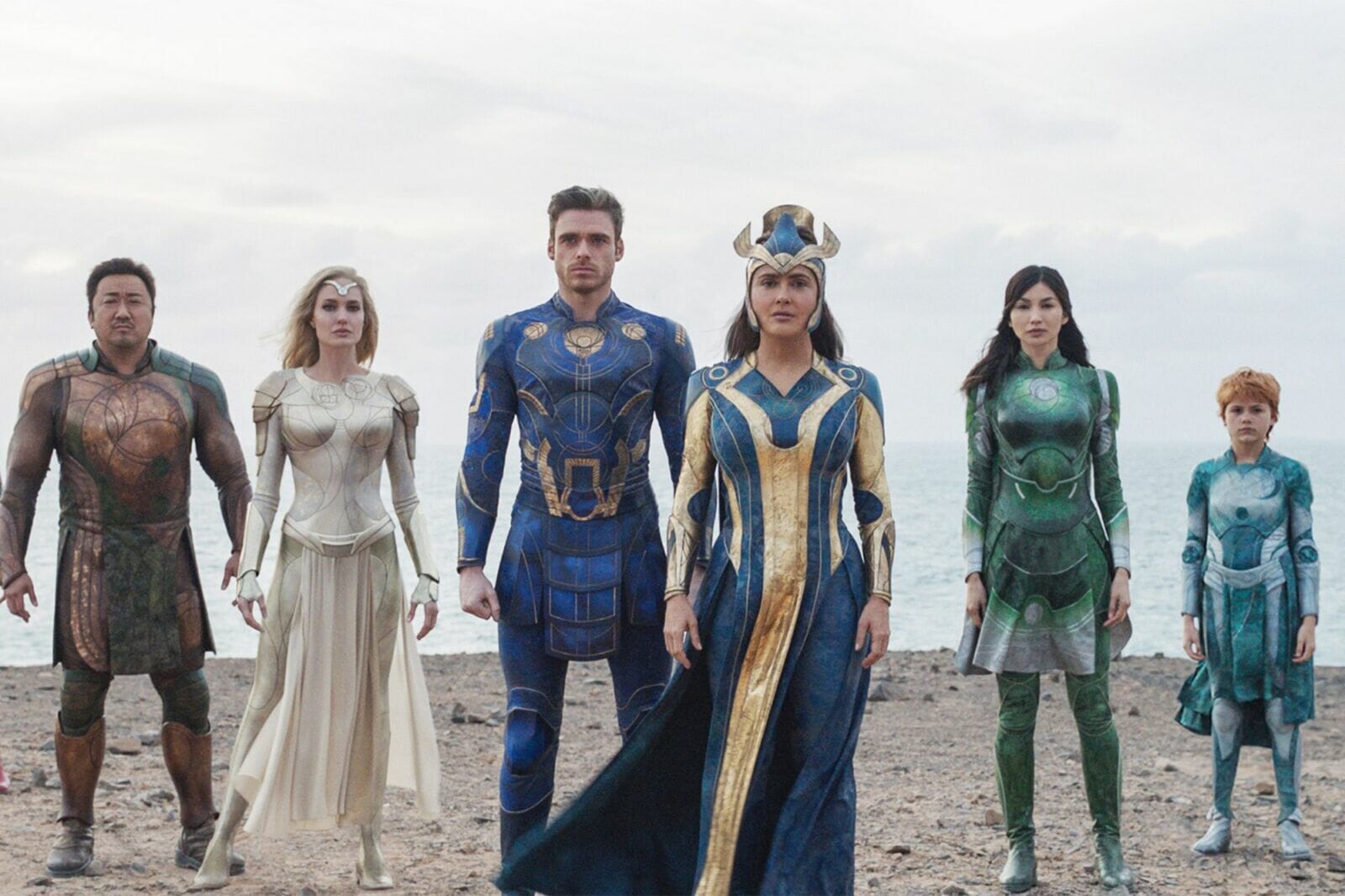It was when Edgar Wright stepped down from Ant-Man that many people drew a line in the sand: the Marvel machine is simply not compatible with artistic vision. The threat that Marvel’s profit margin posed to art was certainly not a new topic, but Wright’s departure brought it to the headlines. His summation of the issue spoke volumes: “I wanted to make a Marvel movie, but I don’t think [Marvel] really wanted to make an Edgar Wright movie.” Four years later, Marvel found an Eternals director in Chloé Zhao, who at the time had two indie films under her belt—neither of which is remotely similar to Marvel fare. So comes the question: does Marvel want to make a Chloé Zhao movie?
Her style is naturalistic, humble, and slow-moving—all things that Marvel movies aren’t (and perhaps shouldn’t be, depending on whom you ask). As evidenced by the Edgar Wright debacle, the higher-ups at Marvel don’t take kindly to stylistic risks. When Kenneth Branagh dotted Thor with Dutch angles, Marvel reportedly tried to horizontalize his shots. Their brand is built on familiarity. If history is any guide, Eternals was doomed to be a concession, not a cooperation.
READ ALSO: 4 upcoming Marvel movie releases to watch in 2021
Even from a bird’s-eye view, the influences guiding Eternals are bizarrely varied. The story was conceived by Ryan and Kaz Firpo, the directors of a short-form documentary on the refugee crisis. The Firpos co-wrote the script with Patrick Burleigh, whose only other feature screenplay credit is Peter Rabbit 2. And, of course, there’s Zhao writing and directing, supervised by Marvel overlord Kevin Feige. If these filmmakers were a superhero team, they’d argue over strategy until Earth was already conquered.
Fittingly, the titular Eternals don’t see eye to eye on their mission. Their history—which is exposited on and off again throughout the movie—is the impetus for their conflict. Eons ago, all life in the cosmos was created by the Celestials, space-dwelling beings of enormous size and power. The Celestials created the Eternals—demigods, essentially—to guide life to intelligence without interfering directly. The Eternals of Eternals were the ones assigned to Earth. After living there for thousands of years, they uncover a truth that threatens to divide them: in the Celestials’ grand design, planets with enough intelligent life are slated for destruction, making way for the creation of new worlds. The Eternals are meant to facilitate that process. It’s the circle of life on a galactic scale, and (some of) the Eternals aren’t having it.
The themes buried in this premise are way, way bigger than Marvel’s usual subtext. Philosophical and theological concepts abound: first cause, free will, the meaning of life, and rebellion against God itself. To the writers’ credit, Eternals doesn’t ignore its implications. Druig, an Eternal who can control minds, loves humankind but believes their free will can only lead to violence. Much of the movie’s midsection finds the Eternals struggling with their God-given purpose. Philosophy on this scale is full of irreconcilable truths, and Eternals is at its best when it doesn’t try to reconcile them. One of the Eternals, though not itching to destroy humanity, doesn’t want to interfere with the Celestials’ plan—and his outlook is treated with legitimacy. That Eternals doesn’t pass judgment on him speaks to the complexity of religion and its adherents alike.
But oh boy, does Eternals reconcile near everything else. The question of free will is an eternally complicated one: are humans free if our actions are destined by a deity, or if our brain chemistry determines our every move? What role does consciousness play? If there’s a loving (demi)god, why give humans the freedom to maim and kill? Eternals skips the first two questions by presupposing free will’s existence, which is fine—this isn’t Gattaca or Devs; it doesn’t need to earn a place in philosophical canon. But after presenting the third question, Eternals “resolves” it without doing any legwork. For no discernible reason beyond an aversion to ambiguity, Druig decides that free will is good, actually, because “without free will, they wouldn’t be human.” Problem dodged; mystery solved.
The other big themes are treated with similar disinterest, especially as Eternals nears its climax. The battle of ideas gives way to cliché: someone “dies” off-screen only to return and save the day, somebody learns a new power in the nick of time, and a bunch of them spew half-wrought sentiments about family. These developments don’t augment the themes in any meaningful way. Even as philosophy falls to the wayside, Eternals holds tight to (what it thinks is) its heart—the value of human beings. Humans are worth saving, the movie stresses repeatedly. But Eternals fails to show us that. There are barely any human characters. The movie wastes so much time hashing out its heroes’ mythology that the human element is merely an abstract. We are the MacGuffin now.
Eternals mimics Zhao’s trademarks on an aesthetic level, but mindlessly so. There are plenty of landscapes, but the story has little to do with how geography shapes its protagonists’ lives, so the landscapes are just… there, ready to be desktop wallpapers. The movie was co-edited by Dylan Tichenor—the editor behind There Will Be Blood and Phantom Thread—which lends the movie a breathable, deliberate pace that’s uncharacteristic of Marvel. But this pace only works when there’s subtext swelling in the quiet moments. Applied to Eternals, it’s just boring. When it comes to action scenes, the genre’s bread and butter, the movie has very few tricks. Something fast punches something else out of the frame; the camera swivels to follow. Shot-reverse-shot of a hero shooting a beam and a villain getting beamed. We’ve seen it all a million times.
By the end, you’ll miss the slick, surface-level pleasures of better MCU efforts. Marvel clearly didn’t want to make a Chloé Zhao movie, but it seems they didn’t want to make a Marvel movie either. If the post-credits scenes are any indication, they’ll soon resume their regularly scheduled programming—hopefully it’ll at least be mindless fun.
★★ (2/5)




